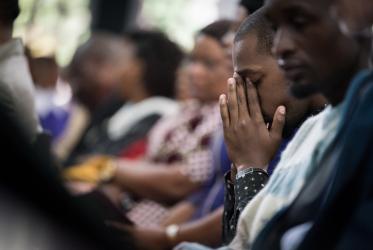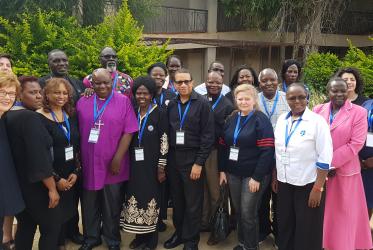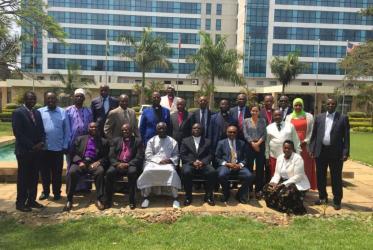„Durch Staatenlosigkeit werden Menschen, die leicht missbraucht werden können und denen ihre Rechte vorenthalten werden, für nationale Behörden unsichtbar. In diesem Sinne ist das Recht auf eine Staatsangehörigkeit eine Frage des Zugangs zum Schutz durch alle anderen Menschenrechte – sozusagen das Recht, Rechte zu haben“, sagte Peter Prove, Direktor der Kommission der Kirchen für internationale Angelegenheiten des ÖRK, nach einem regionalen Workshop zum Thema Geburtenregistrierung und geschlechtsdiskriminierendes Staatsangehörigkeitsrecht in Afrika, der vom ÖRK vom 11.-13. Mai in Addis Abeba (Äthiopien) abgehalten wurde.
17 May 2016







